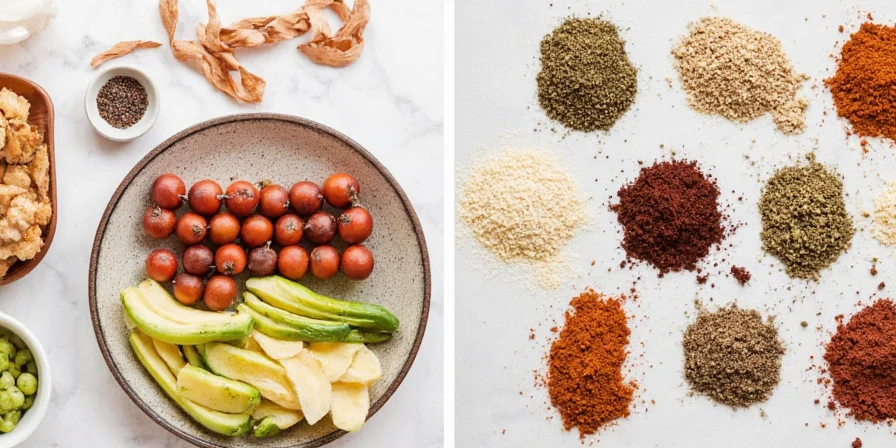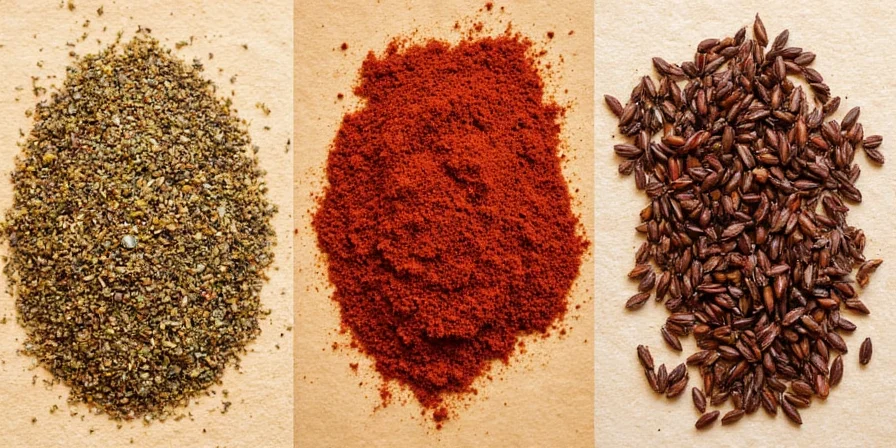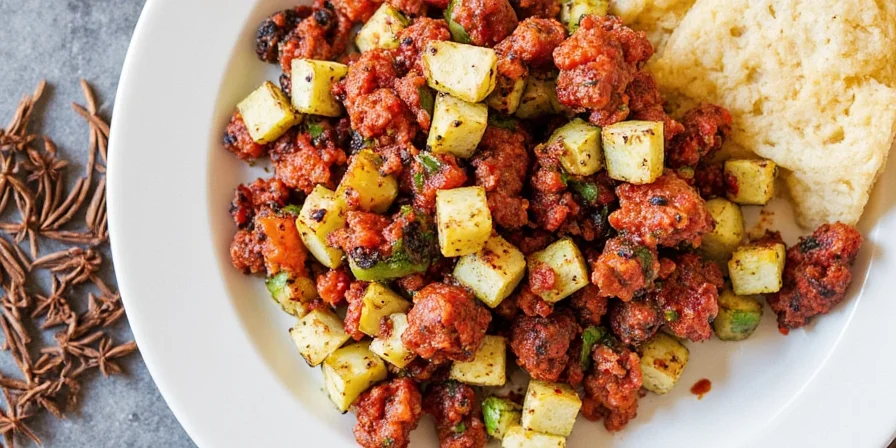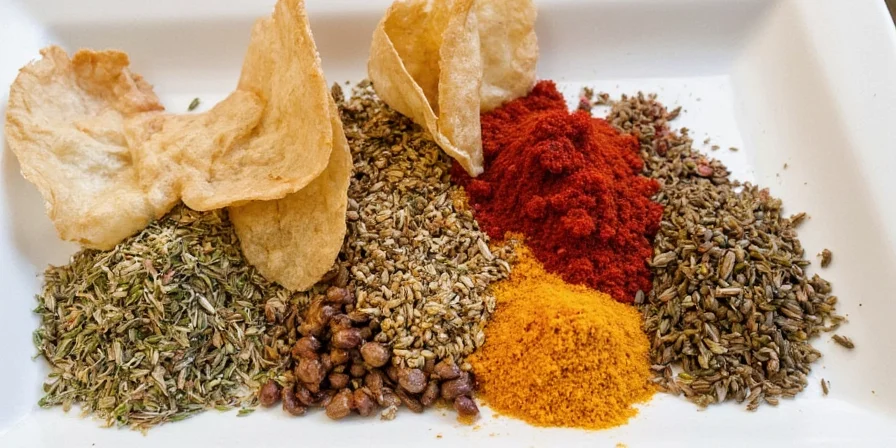From Souvlaki to Spanakopita: Unpacking the Magic of Greek Spice Blends (With Tasty Tips!)
Table of Contents
- Introduction: The Secret Behind That Greek Flavor
- The Core Ingredients of a Greek Spice Blend
- Popular Variations and Regional Twists
- How to Use Greek Spices Like a Pro (Even If You’re Not Greek)
- DIY: How to Make Your Own Greek Spice Blend at Home
- Proper Storage and Shelf Life: Keep It Fresh, Don’t Let It Die!
- Pairing Greek Spices with Non-Greek Dishes: Unexpected But Amazing
- Conclusion: Greek Spice—More Than Just Oregano and Olive Oil
Introduction: The Secret Behind That Greek Flavor
If you’ve ever taken a bite of a perfectly grilled souvlaki skewer or savored a warm slice of spanakopita and thought, “This tastes like sunshine and ancient ruins,” then you already know the magic of Greek cuisine. But what makes it so uniquely delicious? A big part of the answer lies in Greek spice blends.
These aromatic combinations are the unsung heroes behind the Mediterranean flavors we all love. In this article, we’ll dive deep into traditional Greek spice blends, how to use them, and even give you a recipe to make your own at home. Oh, and there’s a table. And some jokes. Let’s get spicy.

The Core Ingredients of a Greek Spice Blend
At the heart of any authentic Greek spice mix are a few staple ingredients that work together like a well-rehearsed chorus line. Let’s break down the stars of the show:
- Oregano: The MVP of Greek seasoning. Dried oregano, especially from Greece itself, has an earthy, pungent aroma that’s instantly recognizable.
- Dill: Often underestimated, dill adds a fresh, grassy note that pairs beautifully with lemon and fish dishes.
- Parsley: Adds brightness and a touch of green freshness.
- Thyme: Earthy and subtle, thyme supports the other flavors without stealing the spotlight.
- Rosemary: Used sparingly, rosemary brings a woody, pine-like flavor that enhances roasted meats and vegetables.
- Fennel Seeds: Common in island blends, especially from Crete. Offers a mild licorice note.
- Salt & Pepper: Of course. Because no flavor party is complete without them.
- Optional Add-ins: Garlic powder, onion powder, coriander seeds, or even a pinch of cinnamon for warmth and complexity.

Popular Variations and Regional Twists
Greece isn’t one big spice factory—it’s a country made up of islands and regions, each with its own culinary fingerprint. Here’s a quick breakdown of how different areas season their specialties:
| Region | Signature Spice/Twist | Common Use |
|---|---|---|
| Mainland Greece | Bold oregano-heavy blend | Grilled meats, salads, moussaka |
| Crete | Fennel seeds + wild herbs | Wild game dishes, cheeses |
| Santorini | Smoky paprika + tomato powder | Tomato fritters, stews |
| Lesbos | Anise + citrus zest | Fish, lamb chops |
| Corfu | Cinnamon + nutmeg | Stews, pastries |
As you can see, there’s no one-size-fits-all approach to Greek spices. But that just means more room for experimentation!

How to Use Greek Spices Like a Pro (Even If You're Not Greek)
Whether you're grilling, roasting, marinating, or simply seasoning roasted potatoes, here’s how to bring that Greek flair into your everyday cooking:
- Marinades: Mix your Greek spice blend with olive oil and lemon juice for a killer meat or veggie marinade.
- Rub for Grilled Meats: Apply directly to chicken, pork, or lamb before grilling or roasting.
- Vegetable Boost: Sprinkle on zucchini, eggplant, or potatoes before baking.
- Hummus & Tzatziki Upgrades: Add a dash to dips for extra zing.
- Egg Dishes: Scrambled eggs? Frittata? Yes, please! A pinch of dill and oregano goes a long way.
- Bread & Baking: Sprinkle on focaccia, flatbreads, or even pizza crusts for a Mediterranean vibe.
- Salad Dressings: Whisk into vinaigrettes or yogurt-based dressings.

DIY: How to Make Your Own Greek Spice Blend at Home
Making your own spice blend is easy, fun, and lets you tweak the ratios to suit your taste. Here's a classic base recipe to start with:
Greek Seasoning Blend Recipe
- 3 tbsp dried oregano
- 1 tbsp dried thyme
- 1 tbsp dried dill
- 1 tbsp dried parsley
- 1 tsp crushed rosemary
- 1 tsp garlic powder
- 1 tsp onion powder
- 1/2 tsp black pepper
- 1 tsp sea salt (adjust to taste)
Mix everything together in a bowl until evenly combined. Store in an airtight container, away from light and heat.
Tips for Customization:
- Add 1 tsp ground fennel seeds if you want a Cretan twist.
- Include a pinch of smoked paprika for smokiness reminiscent of Santorini flavors.
- Want something sweeter? Add a tiny pinch of cinnamon or nutmeg.

Proper Storage and Shelf Life: Keep It Fresh, Don’t Let It Die!
Spices aren’t immortal. To keep your homemade Greek blend vibrant and fragrant, follow these simple storage tips:
- Air-tight Containers: Use glass jars with tight lids. Mason jars work great!
- Dark & Cool: Store in a cupboard away from heat sources or direct sunlight.
- Label Everything: Include the date and contents so you don’t end up with mystery powder three years later.
- Use Within 6 Months: Ground herbs lose potency after about six months. Whole spices last longer but still fade over time.
Tip: For maximum freshness, grind whole spices just before mixing. A small mortar and pestle or a spice grinder works wonders!
Pairing Greek Spices with Non-Greek Dishes: Unexpected But Amazing
Don’t feel confined by tradition. Try mixing Greek spice blends into international cuisines—you might be surprised by how well they play with others:
- Mexican: Add to tacos, especially with grilled chicken or cauliflower.
- Indian: Enhance chickpea curries or lentil soups with a pinch of oregano and thyme.
- Italian: Use in place of Italian seasoning for a fresh twist on pasta sauces or pizzas.
- Korean: Sprinkle into kimchi marinades or gochujang-based stir-fries for added depth.
- BBQ: Rub onto ribs or grilled veggies for a Mediterranean-meets-American flavor fusion.
Conclusion: Greek Spice—More Than Just Oregano and Olive Oil
Greek spice blends are a celebration of simplicity, balance, and boldness. They transform everyday ingredients into something extraordinary without overpowering the senses. Whether you’re a seasoned chef or a curious home cook, experimenting with these blends can open up a world of flavor.
So go ahead—whip up a batch of homemade Greek seasoning, sprinkle it everywhere, and impress your friends with your sudden ability to make anything taste like it came straight from a seaside taverna. And remember: life is too short for bland food. Spice it up!











 浙公网安备
33010002000092号
浙公网安备
33010002000092号 浙B2-20120091-4
浙B2-20120091-4